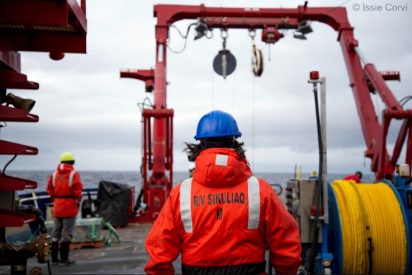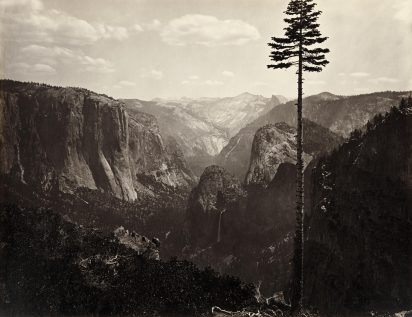Ocean Optimism Week 1: An Ocean Half Full Mindset

By Kelly Martin
You open the newspaper or scroll through your newsfeed and it’s everywhere: another oil spill, natural disaster, or endangered species gone extinct. Doom and gloom fills the pages of most news we see, particularly news concerning the environment. After a while you may think to yourself, “is it even worth trying to fix the planet anymore?” You’re not alone in this sentiment: researchers at Columbia University’s Center for Research on Environmental Decisions (CRED) call this “emotional numbing,” a phenomenon that occurs after repeated exposure to emotionally draining scenarios.
COP23

By Spencer Showalter
In November 2017, more than 200 countries convened in Bonn, Germany for Conference of the Parties 23 (COP 23), the most recent in the yearly United Nations Framework Convention on Climate Change (UNFCCC) conferences. These meetings began in the 1990s with the creation of the Kyoto Protocol, a pioneering international agreement that set the groundwork for substantially reducing global greenhouse gas emissions.
Offshore Drilling Plan Bridges Political Divide

By Priscilla Rivas
“Have you seen what’s happening in the news?” is a question that seems to cause a lot of stress for environmentalists lately. From taking the phrase “climate change” out of the National Security Strategy, to drastically shrinking national monuments, the Trump Administration has stirred a lot of controversy around environmental issues. Such moves are commonly opposed by Democrats, and supported by Republicans.
Reviving Coal Mining in King County

By Colin Bowser
While modern-day industry in Seattle has become synonymous with technology companies, few people realize that the regional economy was once far more coal-black than environmentally-green. With industries like aerospace, timber, and shipping dominating the Puget Sound area of today, it is often not remembered that Seattle and its surrounding counties grew and flourished on the most notoriously polluting hydrocarbon: coal.
5 New Year’s Resolutions to Help Save Our Oceans

By Kelly Martin
Whether you were ready for it or not, another year has come and gone. With the start of 2018, a few things are inevitable: you keep writing the date with “17” at the end, the post-holidays blues set in as you go back to work or school, and you struggle to stick to your list of New Year’s resolutions.
Flags of (in)convenience: how illegal fishing vessels avoid the law

By Samantha Farquhar
Illegal, unreported, and unregulated (IUU) fishing has direct ties to human trafficking, drug smuggling, slavery, and even gang activity. Oh, and of course it directly affects the economic and food security of billions. For example, West Africa, a region where more than 50% get the majority of their protein intake from fisheries and over 3 million are directly employed in the industry, loses 2.3 billion dollars annually to illegal fishing.
How to be a political influence – as an average citizen

By Alex Gustafson
How does an average citizen make an impact on politics? Getting involved can seem daunting, but by following the below steps to engage, and utilizing the many resources out there, you can be on your way to being a political influence. Staying informed, identifying your elected officials, communicating with officials, especially through calls and attending town halls, and writing public comments are all ways to make your voice heard!
STRAWLESS SMEA PART V: WHAT COMES NEXT?

By Alex Tellez
As No Straw November ends, you might be wondering, what comes next? If you’ve successfully said “no” to single-use plastic straws this month, use that momentum to eliminate other single-use plastic products from your daily life. The transition can be difficult, but blogs like myplasticfreelife.com make it easier. The good news is, humans lived plastic-free for thousands of years, so we know it’s possible.
Strawless SMEA, Part IV: 5 Myths of Our Plastic Pollution Problem

By Kelly Martin
As the world becomes increasingly aware of our massive ocean plastic problem, more and more people seem to be on board with ditching their plastic products. Plastic bag bans are becoming common around the world and campaigns like “Go Topless” and “Strawless Ocean” have been successful in discouraging the use of plastic tops and straws for our beverages.
Not All Heroes Wear Capes

By Jessica Knoth
“Lab mouse outcompetes his siblings for food because he’s selfish,” would never be the title of a scientific study. In the biology world, scientists are careful not to anthropomorphize their subjects, believing that doing so would compromise the accuracy of the study. However, it seems naive to assume that humans are the only animals that feel emotions or are motivated by instincts other than eating and reproducing.
Strawless SMEA, Part III: Options for Hopeless Suckers: Four Alternatives to Plastic Straws

By Allie Brown
Are you a hopeless sucker for straws and want to keep sucking? Maybe your mind immediately flashes to milkshakes or bubble tea, those drinks that really do go down better with a straw when someone asks you to #stopsucking. All hope is not lost: if you really cannot refuse a straw, you can at least suck sustainably. And if you are going to suck sustainably you’ll need some options.
The Big What?

by Celeste Barnes-Crouse
Someone recently asked me: “If an earthquake were to happen, would you rather be on a lower floor in a building where stuff could fall on you, or at the top of a building where you could be the thing that’s falling?” It made me question if Seattle is prepared for a major earthquake event. Many Washington State residents have heard the phrase “The Big One” tossed around lately, but what does it mean?
Strawless SMEA, Part II: Straws are the new bags

By Kaitlin Lebon
Everyone knows the story. Plastic is a persistent environmental pollutant, taking hundreds of years to decompose. Plastics we throw away every day are eroded by physical environmental processes like waves on a beach, making it possible for new, tiny bits of plastic to enter the food chain at every level. Marine organisms from birds to fish to corals are consuming these plastics, drawn by the look and even the taste of the debris.
Cooke-ing Up Something Fishy

By Megan Plog
In August, an estimated 300,000 Atlantic salmon were released from a Cooke Aquaculture net pen that failed. Net pens are exactly what they sound like – nets filled with farmed fish. They are a cheaper alternative to land-based aquaculture or closed systems, because they do not need to be regularly cleaned. Net pens allow for free transfer of water through the system, and therefore free transfer of waste, pollutants, parasites, chemicals, and disease.
Strawless SMEA, Part I: The Challenge

By Mackenzie Nelson
You suck! Hey, don’t take it personally—I suck too. Most people suck…through straws, that is. In fact, so many Americans suck that we collectively use 500 million single-use plastic straws every day. That is a lot of plastic. So much plastic that this year Seattle hosted the first city-wide campaign, called Strawless in Seattle, to help remove single-use plastic straws from the US waste stream.
Replacing Leisure with Research: My First Cruise

The second in a series illustrating researchers’ experiences at sea
By Katie Keil
When hearing the word “cruise”, most people picture themselves lounging with a martini in hand on the deck of a monstrous white boat painted with the words “Carnival”. Most marine scientists, however, envision something starkly different: tight quarters, 12-hour workdays, stressful, high-stake research operations, and exciting discoveries. Each cruise has a different set of goals, schedule, and overall experience, but there is one constant: hard work.
Field Science in the Arctic Ocean: An Inside Look

The first in a series illustrating researchers’ experiences at sea
By Kaitlin Lebon
It’s 11pm, and for Kylie Welch— a Faculty Research Assistant with the Goñi Lab at Oregon State University (OSU)—the day is just beginning. She walks from her cabin to the galley and grabs a snack. As she looks out a porthole onto the cold Arctic water, she prepares for another twelve-hour shift of sampling.
The Right Half of Our Brains

By Allie Brown
I have always been more comfortable in the humanities than the sciences. In humanities classes I fly through the readings and they hold my interest, while science classes tend to feel like trekking through a powdery snow in really heavy boots. While reading a biology textbook my eyes consistently wander away from the black and white lettering to the images that are meant to supplement the words.
What happens after the hurricane?

By Rachel Freemen
Rachel Freeman, a recent SMEA graduate, has spent the past weeks in Houston helping her family and friends recover from Hurricane Harvey. Below Rachel shares her experiences and observations in the aftermath of the storm.
Observations from the field
Now that the water has greatly receded, life in Houston appears normal at first glance, save for the large piles of debris that line the curbs of streets throughout the city.
Public Beach Access

By Danielle Edelman
As summer approaches, thousands of people will be flocking to the iconic beaches of the West Coast for some fun in the sun and the sound of the waves. From northern Washington to southern California, there are many popular public spaces people can use to access the Pacific Ocean. What few people consider as they work on their tans is the long struggle for public access to beaches all along the West Coast.